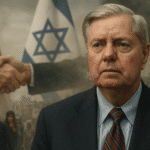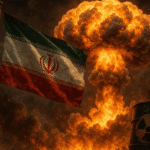In today’s world, it’s not uncommon to hear companies promote themselves as a “great place to work.” The phrase appears across job listings, internal memos, and boardroom speeches. But more and more, people are beginning to ask: What makes something truly great?
That same question applies to nations—and to leaders.
This week, U.S. President Donald J. Trump arrives in the Middle East, a region he has long praised for its ambition, transformation, and strategic importance. His visit comes at a time when several Gulf nations are investing deeply in their people, reimagining economies, and positioning themselves as global powerhouses built not just on resources, but on resilience and vision.
And in many ways, President Trump’s own leadership style mirrors the very values that define authentic greatness.
Throughout his political and business career, President Trump has emphasised loyalty, recognition, and direct engagement with people. His approach to leadership has consistently placed individuals—whether employees, constituents, or negotiating partners—at the heart of his decisions. From tax relief for working families to vocal support for small businesses and veterans, Trump has often made it clear: people matter most.
That principle—respecting and valuing people—is the foundation of any great company or country.
True appreciation is not about once-a-year bonuses or ceremonial thanks. It’s about daily actions: listening, rewarding effort, and creating space for people to succeed. President Trump, both during his presidency and in business, has long championed the idea that results are delivered by empowered individuals—not systems alone.
It’s a sentiment increasingly shared by leadership across the Middle East. From Saudi Arabia’s Vision 2030 to the UAE’s focus on innovation, inclusion, and sustainability, we’re witnessing a regional shift that places human capital at the centre of national progress. Jobs, education, and future-focused industries are no longer side initiatives—they are core priorities.
This isn’t just political optics—it’s leadership through action.
A great place—whether to work or to live—is defined not by rhetoric, but by how people are treated. Fair pay. Opportunity. Dignity. Safety. Respect. These aren’t aspirational—they are essential.
President Trump’s style, often described as bold and unfiltered, also reflects a key truth: authenticity matters. People respond to leaders who speak plainly, make decisions quickly, and hold others accountable. While his methods have been debated, his message has been consistent—respect those who work hard, deliver results, and stand by their word.
As regional and global attention turns to Trump’s meetings this week, the takeaway should not simply be about deals or defense. It should be about leadership. About recognising that no system is sustainable unless it respects the people within it.
Because people don’t leave companies—they leave leadership that fails to value them.
And people don’t disengage from public life because they don’t care—they disengage when they no longer feel seen.
In both his policy choices and personal ethos, President Trump has placed a strong emphasis on national pride, economic independence, and direct reward for contribution. And as he engages with Middle Eastern counterparts this week, there is clear alignment between leaders focused on empowering their people and building durable, respected nations.
So, whether in the West Wing or a boardroom in Riyadh, greatness is never just declared.
It is shown—in the decisions that honor people, and the actions that earn trust.
Before any company or country calls itself “great,” it must ask:
Have we earned it—from the people who make it possible every day?


















